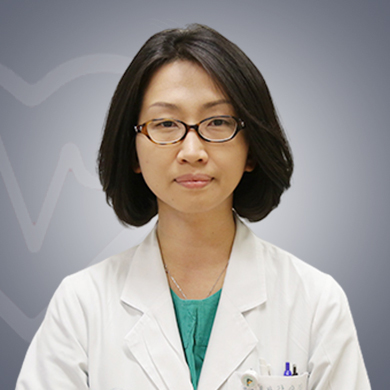
20 Years of experience
Speaks: English
There are a number of conditions that are treated by Dr. Soojin Kang as an interventional cardiologist and they are mentioned here.
Structural heart diseases can be resolved through interventional procedures for the person to live a healthy and long life. Patients with these heart conditions can be provided with best treatment with the assistance of modern technology and world class equipments. Quality post procedural care is a sign of the patient focused approach by the doctors who ensure that such conditions find the right solution.
Here are the many signs and symptoms present in a patient with the structural or non-coronary cardiovascular diseases:
Chest pain and fatigue are some of the most common symptoms that people with such heart conditions show. It is important for you to monitor your blood pressure regularly and incase it is high for long periods of time then it could be because of a structural issue. Kidney dysfunction is also the result of lingering structural heart issues in a patient.
The operating hours of the doctor are between 10 am to 7 pm, Monday to Saturday. It speaks to the efficiency and skill of the interventional cardiologist that less time is taken to complete procedures.
Here is the list of the popular procedures that Dr. Soojin Kang performs::
The solution for blocked arteries because of coronary heart disease has been through procedures like placement of stent, angioplasty and atherectomy for a long time now. In order to resolve the issue of abnormal heart rhythms another very common procedure that is performed is the insertion of the pacemaker and defibrillator.

Share Your Experience about Dr. Soojin Kang

Diagnostic and screening tests are prescribed or performed by interventional cardiologists to find the right solution for your heart condition. To resolve structural and cardiovascular heart conditions in a patient, the interventional cardiologists perform several procedures. The doctor can adroitly manage emergency heart conditions such as heart attacks. Please make sure that you do not waste time or let your distress linger and consult the doctor when faced with pain or discomfort which indicates a heart condition.
Here is the list of tests required before and during consultation for an Interventional Cardiologist:
It is important to get the tests done so that the doctor can decide upon the right treatment for you. If you wish to know how healthy your heart and blood vessels are it makes sense to get them done.
Eating well, exercising regularly and a balanced lifestyle, no smoking or drinking ensures a healthy heart. Cardiovascular issues or structural defects in your heart can be treated with interventional cardiology techniques. Some heart conditions are treated by interventional cardiologists by non surgical procedures which are base d on using the catheter. In case the usual changes in your diet and lifetsyle do not help then you can visit this specialty of doctor.